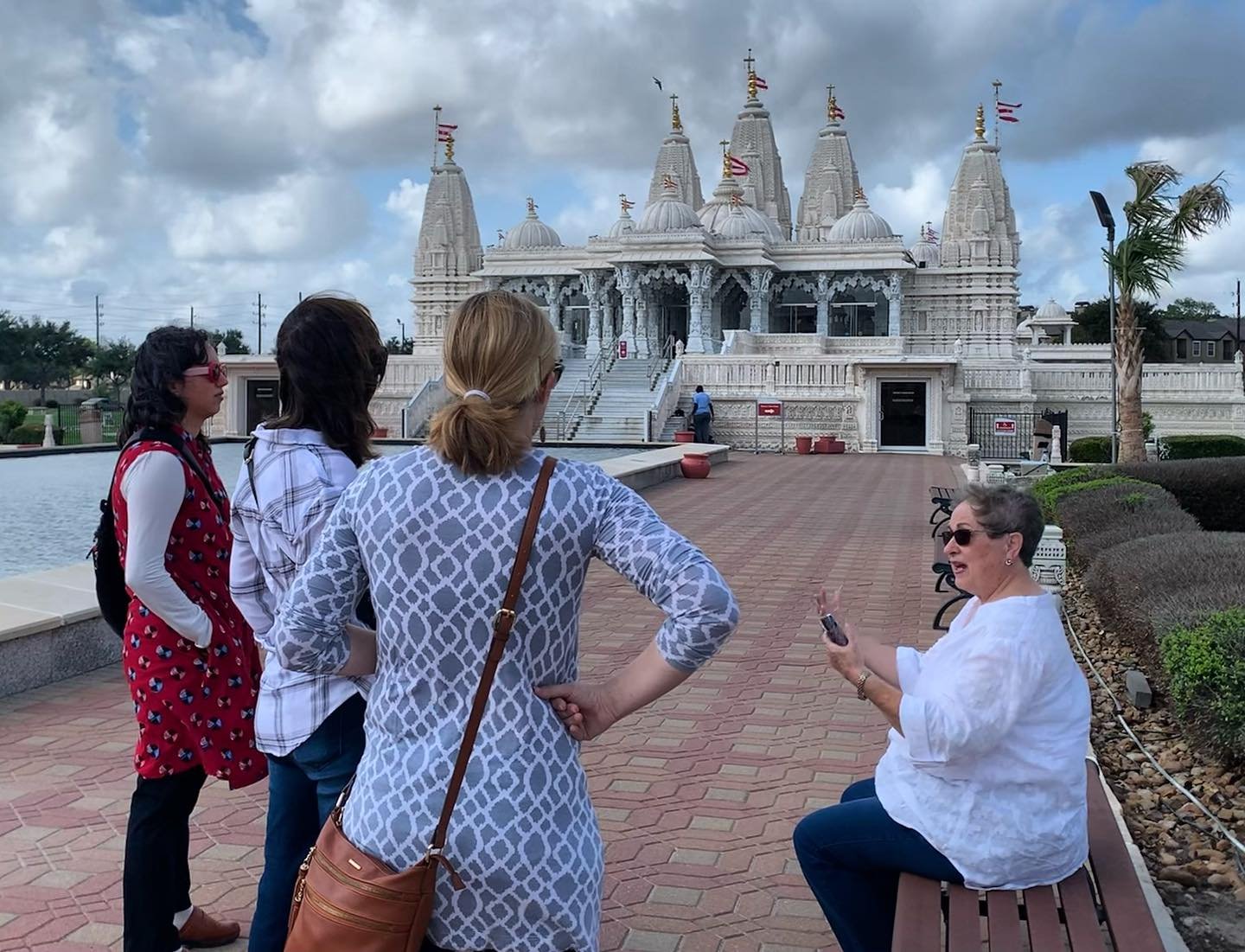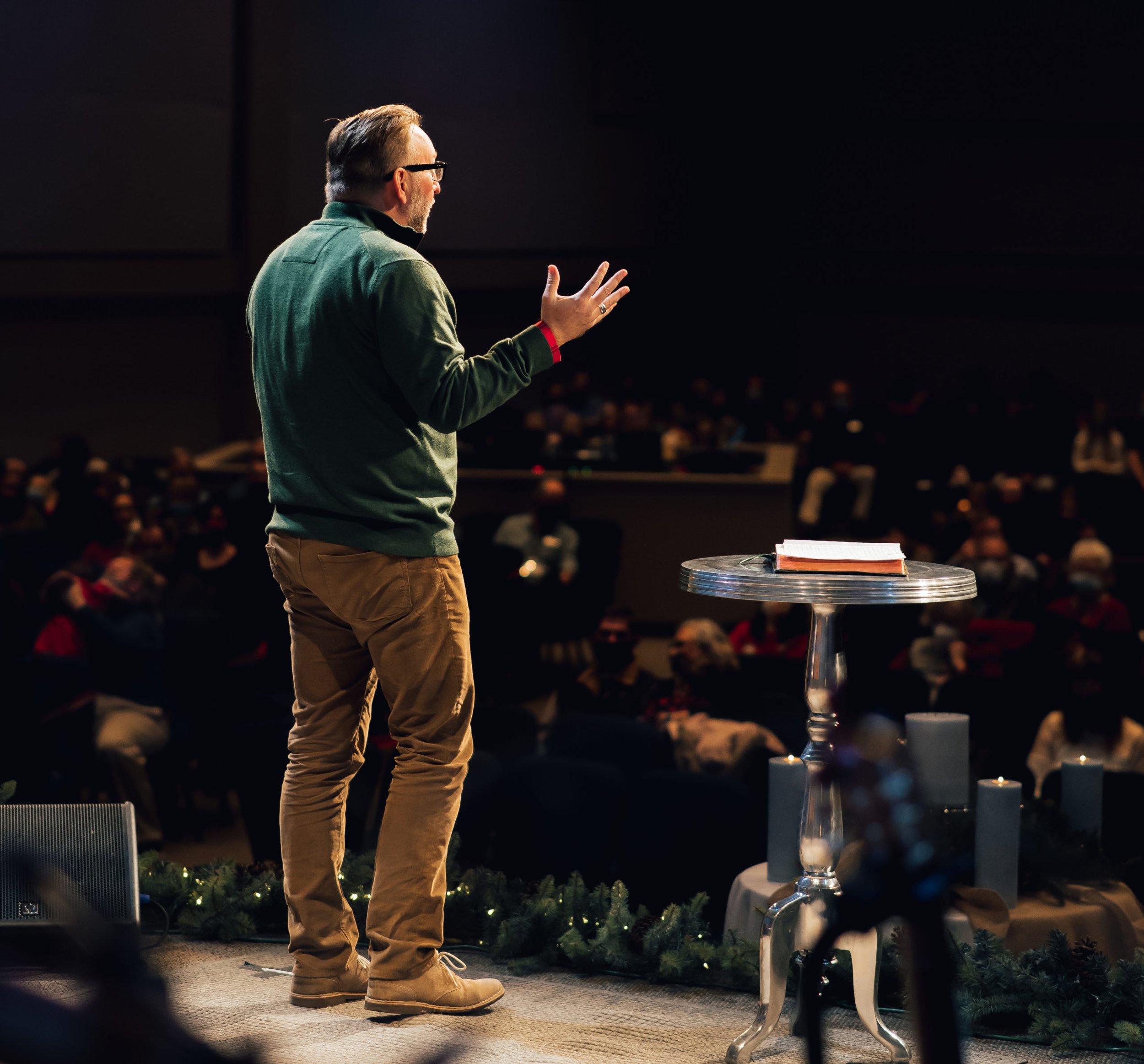Doubts and Deconstruction are an Opportunity to Respond Well
By: Tobin Perry
It’s not easy for a young preacher to stand before his congregation week after week while questioning fundamental truths of the Christian faith. Twenty years ago, that’s the position Steve Bezner found himself in.
Bezner questioned nearly everything about his faith—from who Jesus was, to the nature of the Bible, to the miraculous.
“I was frightened,” said Bezner, who currently serves as the senior pastor of Houston Northwest Church. “I was afraid it would come through in my preaching.”
Bezner didn’t call his experience during those dark nights of wrestling with doubts in the late 1990s deconstruction, but as he tells it, his struggles sound like the growing movement of that name occurring throughout the evangelical world in recent years. Despite Bezner’s doubts, God continued to use the young pastor in his church. People were coming to faith in Christ and getting baptized.
Two decades later, Bezner confidently affirms the great creeds of the church and biblical orthodoxy, but he believes the years wrestling with doubts helped him grow as a Christian and made him a better pastor. He thinks back to his own doubts as he writes sermons to ensure he is thinking about the questions he was asking. Particularly during Christmas and Easter, he tries to signal to his listeners that he understands their struggles and can help.
“It also makes me more empathetic and gentler,” Bezner said. “If people want to meet one on one and have questions, I’m not looking to doubt them. I’m not looking to question why they have these doubts. I’m looking to say, ‘Tell me what your questions are.’”
What is Deconstruction?
Ted Cabal, a professor of philosophy of religion at Southwestern Baptist Theological Seminary, notes that the term “deconstruction” has its roots with Jacques Derrida, whose skepticism led him to question the existence of truth.
“It’s actually better that people come to recognize what they really believe, instead of rocking along”
Today, in evangelical circles, the term relates to people taking apart their previously held faith system. The term has become broad enough to include everything from a complete rejection of orthodox Christianity to a sincere Christian’s re-thinking previously accepted doctrinal and cultural beliefs.
Cabal doesn’t believe deconstruction should be classified as a new intellectual movement but placed within a history of doubt that Christians have responded to for the entire history of the church. Cabal doesn’t believe it’s all bad either. He notes that in today’s culture, when many Americans see themselves as Christians and when their beliefs clearly don’t line up, it’s better for people to be clear about their doubts.
“I think in these cases, it’s actually better that people come to recognize what they really believe, instead of rocking along, taking the kids to the soccer game. ‘I’m a Christian, I don’t really care to think about really important things like God and life and death,’” Cabal said “I think this is an opportunity for us to have more serious conversations with people who really do feel these things, viscerally. They’re upset. They’re mad at the church, or they’ve gone through some terrible life experience of suffering and are mad at God. Well, that’s what [the church is] here for.”
“Christians don’t need to be experts in science and philosophy to respond biblically.”
Cabal encourages Christians to keep Gospel conversations going with people who are dealing with doubts. Apologetics can be a good tool for this, he believes. Christians don’t need to be experts in science and philosophy to respond biblically.
“Have a conversation and care enough about them and love them and be kind and thoughtful, even as the Lord has been with us,” said Cabal, who served as the general editor for Broadman and Holman’s Apologetics Study Bible. “For someone like me, who was a blasphemer, evil, unbeliever, why should I not extend the very same kind of grace of God as He did to me?”
When Christians Wrestle
David Rathel, an associate professor of Christian theology at Gateway Seminary, says Christians shouldn’t be afraid of tough questions brought on by people deconstructing their faith. Rathel points to narratives throughout the Christian tradition—from Scripture to church history—of people wrestling with doubt and despair.
“The Christian intellectual tradition is rich enough to handle the questions we throw at it,” Rathel said. “We don’t have to be afraid to come with hard, deep, difficult questions because the doctrine can do its work.”
“The Christian intellectual tradition is rich enough to handle the questions we throw at it.”
Rathel believes much of the deconstruction discussion is coming not from intellectual questions about Christianity but out of responses to pain. Like Cabal, Rathel urges Christians to “listen and love.
“Let them tell their story,” Rathel said. “Don’t run to the defensive and don’t always reach for the canned answer.”
Rathel says it’s “bigger than a conversation between two brains.” It’s important that Christians responding to these doubts understand why these questions are being asked before trying to answer them.
Talking About Your Doubts
Bezner believes people who are struggling through doubts need a trusted mentor with whom they can discuss their questions.
“I had a mentor. I had the space to read,” Bezner said. “In that, I was able to answer some of my questions and say, ‘OK, I’m not crazy. This makes sense.’”
Now Bezner wants to be that kind of mentor to others as they walk through doubts. Not everyone with whom Bezner walks through doubts comes to faith or comes back to faith, but he keeps the conversation going.
“I think that’s probably the key pastorally,” Bezner said. “I think when people have doubts, it’s not their doubts that lead them out of the faith. It’s whenever their church or their pastor or their mentor won’t let them have doubt and ask questions. Because most of the time, doubts come because of personal experience, or through discovering new information.
“And so, if we believe that God is the God of truth and that all truth is God’s truth, then we shouldn’t be afraid of new information. We should be able to say, ‘OK, if that’s new information that’s come to light and that’s truthful information, then there’s got to be a way that it integrates into the scriptural narrative in a way that completely supports what God has told us.’”
A version of this article originally posted on Baptist Press.










How can leaders develop a healthy culture for their church staff?